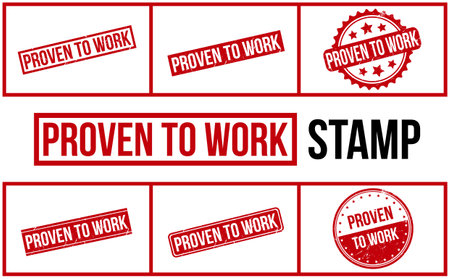Understanding the UK Tech Landscape
If youre aiming to build a thriving tech career in the UK, it’s essential to first understand the local landscape. The UK’s technology sector is dynamic, diverse, and shaped by unique regional hubs, innovative industries, and distinctive workplace culture that sets it apart from other global markets.
Regional Tech Hubs
The UK tech ecosystem extends well beyond London, with several cities emerging as powerhouses for innovation and opportunity. Here’s an overview:
| Region | Key Specialisms | Notable Features |
|---|---|---|
| London | Fintech, AI, Cybersecurity | Largest concentration of startups and VCs; international talent magnet |
| Manchester | MediaTech, eCommerce | Fast-growing startup scene; strong ties to creative industries |
| Edinburgh & Glasgow | Fintech, Data Science | Thriving financial sector; supportive government initiatives |
| Bristol & Bath | Semiconductors, Robotics, IoT | World-class universities; collaborative tech clusters |
| Cambridge | Biotech, AI, Deep Tech | Renowned for research and spin-outs; close university-industry links |
Key Industries Driving Growth
The UK is at the forefront of several high-impact sectors. Fintech leads the charge, thanks to Londons status as a global financial centre. Artificial Intelligence and Data Science are gaining rapid traction, with substantial investment and talent inflow. Other notable sectors include HealthTech—particularly strong in Cambridge—and eCommerce, which thrives in Manchester and London alike.
The Influence of British Workplace Culture
Navigating the UK tech industry means understanding how British culture shapes the work environment. You’ll find that communication tends to be polite and understated—direct confrontation is often avoided in favour of diplomacy. Workplaces value punctuality, professionalism, and inclusivity. Flexible working arrangements are common, especially post-pandemic, but there’s also a strong emphasis on work-life balance. Diversity and sustainability are increasingly prioritised within hiring practices and company missions.
Why This Matters for Your Career Progression
A deep appreciation of these regional strengths and cultural nuances will help you identify where your skills best fit—and how you can thrive from graduate entry right up to CTO level. Whether you prefer the buzz of London or the collaborative spirit of Bristol’s tech community, understanding these distinctions will inform smarter career moves and networking opportunities.
2. Securing Your First Tech Role: Graduate Schemes and Beyond
Breaking into the UK tech industry starts with a sharp focus on graduate schemes, apprenticeships, and entry-level positions. These pathways are highly competitive but provide invaluable hands-on experience and rapid skill development. Here’s how to maximise your chances of landing your first tech role:
Understanding UK Graduate Programmes vs Apprenticeships
| Pathway | Key Features | Ideal For |
|---|---|---|
| Graduate Schemes | Structured training, rotation across departments, often at large firms, 1–2 years duration | University graduates seeking broad exposure and rapid progression |
| Apprenticeships | Earn while you learn, mix of work and study, open to all ages, government-backed standards | Career changers or those without a degree wanting practical experience |
| Entry-Level Positions | Immediate start roles focusing on a specific function or technology stack | Candidates with some relevant skills or bootcamp graduates |
Actionable Strategies for Success
- Target the Right Employers: Focus on UK-based tech firms known for nurturing talent—think BT, Arm Holdings, Sage, or fintech disruptors like Revolut and Monzo.
- Customise Your CV & Cover Letter: Highlight technical skills (Python, JavaScript), soft skills (problem-solving, communication), and any project-based achievements. Use concise, British English.
- Leverage University Careers Services: Attend campus career fairs, mock assessment centres, and networking events.
- Pursue Work Experience: Internships and volunteering in tech-focused charities (e.g., Code Club UK) can boost your profile.
- Nail Online Assessments: Practise logic, coding challenges, and situational judgement tests as these are standard in UK hiring processes.
- Create a Standout LinkedIn Profile: Connect with UK recruiters and alumni; share projects demonstrating your initiative and results.
Tips for Securing Interviews in a Competitive Market
- Network Proactively: Join local meetups (e.g., London Tech Meetup), hackathons, and online communities like Stack Overflow UK.
- Tailor Applications: Address the specific company values—British employers value cultural fit and enthusiasm as much as skills.
- Prepare for Technical Interviews: Practise whiteboard coding and competency-based questions common in the UK market.
- Follow Up Professionally: After interviews or networking events, send polite follow-up emails to express gratitude and reaffirm your interest.
Your Next Step: Build Momentum Early
The journey from graduate to CTO begins with your first role. By understanding the unique features of the UK job market and applying targeted strategies, you’ll position yourself ahead of the competition. Stay consistent—opportunity favours those who prepare relentlessly and engage proactively with the industry.

3. Climbing the UK Tech Career Ladder
Progressing from a graduate role to senior positions in the UK tech sector demands more than technical skills alone. To secure promotions and step into mid-level roles, you must demonstrate a blend of up-to-date expertise, leadership potential, and an understanding of the unique expectations within British companies.
Upskilling: Stay Ahead of the Curve
The UK tech industry evolves rapidly, so continual upskilling is non-negotiable. Engage in regular training—whether it’s mastering new programming languages, cloud platforms, or agile methodologies. Many employers value candidates who pursue self-directed learning via platforms like FutureLearn or LinkedIn Learning. Moreover, attending UK-based tech meetups and conferences such as London Tech Week can help you network and spot emerging trends early.
The Value of Professional Certifications
Certifications are a proven way to stand out in the British job market. They act as a benchmark for your expertise and commitment to professional development. Below is a table highlighting certifications valued by UK employers at different career stages:
| Career Stage | Relevant Certifications (UK Focus) |
|---|---|
| Entry/Graduate | CompTIA ITF+, Microsoft Fundamentals, Google Associate Cloud Engineer |
| Mid-Level | AWS Certified Solutions Architect – Associate, BCS Certificate in Business Analysis, PRINCE2 Practitioner |
| Senior/Lead | CISSP, TOGAF 9 Certified, Chartered IT Professional (CITP – BCS) |
Standing Out for Mid-Level Roles
To move up the ladder in the UK context, focus on both soft skills and demonstrable results. Employers seek professionals who proactively solve problems and communicate clearly with cross-functional teams. Getting involved in mentorship schemes or contributing to open-source projects can also boost your profile.
Key Strategies for Promotion
- Request regular feedback from line managers and act on it
- Document your achievements with measurable impact (e.g., improved process efficiency by 30%)
- Volunteer for high-visibility projects or secondments within your company
British Workplace Culture Tips
Finally, remember that cultural fit matters in the UK. Show humility, reliability, and a collaborative attitude—qualities highly regarded by British employers. By combining technical prowess with these soft skills and strategic upskilling, youll accelerate your ascent on the UK tech career ladder.
4. Mastering Essential Skills for UK Tech Professionals
To thrive in the UK tech sector, it’s critical to blend technical expertise with strong soft skills. Employers across the UK value not only your ability to code or manage systems but also how you communicate and collaborate within a diverse, often multicultural environment. Here’s a practical breakdown of key skills and actionable strategies to develop them.
Technical Skills: Staying Relevant and Competitive
| Skill | Why It Matters in the UK | How to Develop |
|---|---|---|
| Programming (Python, JavaScript, etc.) | Core requirement for most roles; agile startups and established firms alike look for up-to-date knowledge. | Engage in continuous learning via online platforms like FutureLearn or attend local coding bootcamps in cities such as London and Manchester. |
| Cloud Computing (AWS, Azure) | Many British companies are moving infrastructure to the cloud; familiarity is essential. | Pursue certifications (e.g., AWS Certified Solutions Architect) and join local meetups (e.g., AWS User Group UK). |
| Cybersecurity Awareness | With strict data protection regulations like GDPR, security skills are highly valued. | Take short courses offered by UK universities or attend workshops at industry events such as Infosecurity Europe. |
Soft Skills: The Competitive Edge
| Skill | Importance in UK Workplaces | Tactics to Improve |
|---|---|---|
| Communication | Crisp, clear communication is vital in British business culture, especially when working with remote teams or clients. | Join Toastmasters clubs or participate in company presentations; seek feedback from peers on clarity and tone. |
| Teamwork | The UK values inclusivity and collaboration, particularly in cross-functional Agile teams. | Get involved in hackathons or volunteer for team projects; embrace different perspectives and cultural backgrounds. |
| Adaptability | The pace of change in tech is rapid; employers appreciate those who can handle ambiguity and pivot quickly. | Request rotations across departments or take on new challenges outside your comfort zone; reflect regularly on lessons learned. |
Navigating Diversity in the UK Tech Scene
The UK workforce is renowned for its diversity. Being open-minded and culturally aware enhances your ability to work effectively with colleagues from all over the world. Make an effort to understand local customs—like the importance of punctuality or British politeness—and actively support inclusion initiatives within your organisation.
Practical Tips for Skill Development:
- Set monthly goals for both technical upskilling (e.g., learning a new framework) and soft skill enhancement (e.g., leading a stand-up meeting).
- Seek mentorship through schemes such as Tech Nation’s Rising Stars programme.
- Regularly request feedback from line managers, focusing on both project delivery and interpersonal impact.
Cultivating these core competencies will set you apart as a well-rounded tech professional ready to progress from graduate roles right up to CTO level in the dynamic UK market.
5. Networking and Building Your Personal Brand in the UK
In the UK tech sector, your network and reputation often carry as much weight as your technical skills. Strategic networking and proactive personal branding are crucial for advancing from graduate roles to senior leadership positions like CTO.
Effective Approaches to Building Your Reputation
1. Tech Meetups
Attending local tech meetups is a fantastic way to connect with professionals, learn about current trends, and discover job opportunities. Cities like London, Manchester, and Edinburgh have vibrant meetup scenes covering everything from FinTech to AI. Be proactive—volunteer to speak or help organise events to stand out.
2. LinkedIn Optimisation
LinkedIn is the go-to platform for UK professionals. Ensure your profile highlights your achievements, projects, and endorsements from colleagues. Engage with industry posts and share insightful content to boost visibility among recruiters and peers.
3. Professional Associations
Joining respected associations such as BCS (The Chartered Institute for IT) or TechUK demonstrates your commitment to the field. Membership offers access to exclusive events, certifications, and a strong professional network.
4. Industry Events & Conferences
Regularly attending industry events like London Tech Week or regional expos helps you stay updated on emerging technologies while expanding your network. Consider presenting at these events or joining panel discussions for greater visibility.
Networking Channels Comparison
| Channel | Benefits | Tips for Success |
|---|---|---|
| Tech Meetups | Local contacts, informal learning, job leads | Be consistent; follow up after events |
| Wide reach, professional branding, recruiter access | Keep profile current; interact regularly | |
| Professional Associations | Credibility, exclusive resources, mentorships | Pursue certifications; attend member events |
| Industry Events | Latest insights, high-profile networking, exposure | Speak or volunteer; connect post-event |
The British Approach: Subtlety and Authenticity Matter
In the UK, effective networking isn’t about aggressive self-promotion—it’s about building genuine relationships over time. Show curiosity about others’ work, offer value before asking for help, and always follow up with gratitude. Consistent engagement across multiple platforms will steadily grow your reputation in the British tech scene.
6. Preparing for Leadership: Your Path to CTO
Reaching the C-suite in the UK tech sector demands more than just technical prowess—it’s about cultivating leadership capabilities, mastering team management, and strategically positioning yourself for advancement. Here’s how you can accelerate your journey from senior engineer or manager to CTO.
Real-World Tactics for Leadership Development
- Continuous Learning: Pursue leadership courses from UK institutions (e.g., Chartered Management Institute) and stay updated with industry standards like ITIL and Agile frameworks.
- Mentorship: Seek mentorship from current tech leaders through networks such as TechUK or BCS, The Chartered Institute for IT.
- Cross-functional Experience: Volunteer for projects outside your core expertise—product, operations, or customer success—to broaden your business perspective.
Managing British Teams Effectively
Understanding British workplace culture is crucial for effective team management. The following table outlines key aspects:
| Aspect | Best Practice |
|---|---|
| Communication Style | Be clear yet diplomatic; embrace feedback and open dialogue. |
| Diversity & Inclusion | Champion equality; engage in regular DEI training. |
| Decision-Making | Pursue consensus when possible; involve stakeholders early. |
| Work-Life Balance | Respect boundaries; promote flexible working options. |
Positioning Yourself for Senior Roles in the UK Market
- Build a Visible Profile: Speak at local tech meetups, contribute to UK tech blogs (like Silicon Roundabout), and maintain an active LinkedIn presence tailored to British audiences.
- Network Strategically: Attend industry events such as London Tech Week or regional Digital Catapult sessions to connect with decision-makers.
- Deliver Business Impact: Consistently link technical initiatives to measurable business outcomes—think revenue growth, cost savings, or innovation metrics.
Your Roadmap to CTO Success
- Set clear leadership goals and review them quarterly.
- Cultivate trusted relationships across departments.
- Pilot new technologies that align with company strategy.
- Champion agile transformation and digital inclusion efforts.
- Pursue executive coaching tailored to the UK market.
The Bottom Line
The leap from practitioner to CTO in the UK is a blend of strategic self-development, cultural fluency, and relentless focus on delivering business value. Invest in these areas consistently, and you’ll not only lead successful teams but shape the future of technology at the highest level in Britain.


